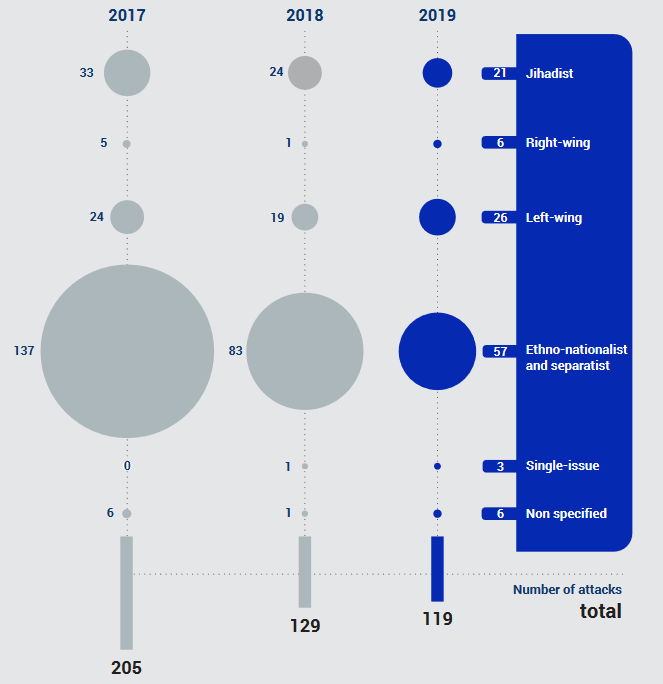How Rahm Emanuel Would Run the World (Ep. 415) - Freakonomics Freakonomics - "LEVITT: My own hypothesis is that we’ve done a really bad job in this country at making people data-literate. And our school systems haven’t focused on data; they haven’t kept up with the advances in thinking and computing over the last 50 years. And I think we’re paying the price in this epidemic because many public servants and many policymakers aren’t trained to think in the right way about data science and models. What’s your reaction to that?
EMANUEL: Well, this is rare for an Emanuel. I haven’t thought about that, so I don’t know. But usually we have answers before we have questions. My knee-jerk answer is: I’m not sure everybody should be walking around being a data scientist. That’s what data scientists are for... everybody goes, “Oh, just follow the scientists.” Well, I come from a medical family. My dad— how many times my dad asked for a second opinion? There’s a reason you ask for a second opinions. The science— I hate this analogy when everybody goes, “Oh, just follow the science.” Well, the science isn’t clear! We’re chasing information and it’s moving in real time as we’re making judgments. And that’s where you’re going to need just making a judgment. In the storm of a crisis, you’re making informed, educated guesses. And the emphasis is on the word, “guess,” not “informed” or “educated.”...
You’d have to be idealistic enough to know why you’re doing what you’re doing, and then tough enough to get it done. And if you look at successful presidents in history, neither one tips the scales too far one way or the other. They have both of those skill sets. And you look at all the ones that never make it, they usually tip one way or the other...
You got to help the president evaluate all the options. President Kennedy used to say, “To govern is to choose between bad and worse.” And the judgment you need is to figure out which one is bad and which one is worse."
Timothy Sly's answer to My mother-in-law leaves the butter out on the counter 24/7 for days. I am certain this is a health hazard. Is it a health hazard or perfectly safe? - Quora - "Perfectly safe. In warm weather the butter may melt, but whether you use it melted (as for frying shrimp) or refrigerate it again, it is SAFE. After a longer period of time, the surface may take on a slightly oxidised taste (like soap or cardboard). This is a quality issue and has NO basis in health.
[Added edit] Butter is between 86%-93% butterfat. the remainder is moisture and salt. This means all of the salt is in the small amount of water. Bacteria do not live or multiply in either fat or very salty water. That is why butter is so safe."
Justin Coates - "We need to remake 300 from the Persian perspective where it’s a bunch of cultured monotheists coming to liberate a nation ruled by slave-owning, baby-murdering, pedophile pagans. Same ending obviously, except it’s depicted as a tragedy where a bunch of backwater dipshits who think their shit-awful society is the height of civilization eventually get steam rolled by an empire that will go on to be one of the greatest in history."
Steve Horwitz - "From the comments, James Hanley wins Facebook for the time being:
"Some of us are free enough to enjoy playing at being oppressed.""
Comments: "How history is taught over the past 20 years:
The world divides into two groups, the powerful and the oppressed. The powerful are bad and the oppressed are good.
How rich liberal arts majors react:
I am oppressed and therefore good!"
Yaakov Markel - "We need to pay teachers the way we pay athletes. What a beautiful world that would make."
"If we paid teachers how we paid athletes, it’d be based on ticket sales and there would be an extremely small number of elite super-teachers that’d rise to the very pinnacle of the field......while everyone else pretty much remained unpaid hobbyists. 🤷♂️"
Comment (elsewhere): "So, 1% of them gets millions, while 99% of them get paid less than min wage, and gets cut after 3 years?"
Roo stays at home 🦅️🇨🇦🇭🇰🇺🇲 on Twitter - "Don'tcall yourself a feminist ifyou don't stan the British monarchy"
Moment boy, 9, weeps with joy as he tucks into his first McDonald's after months of lockdown - "This is the heartwarming moment a nine-year-old autistic boy broke down in tears after his mother brought him his first McDonald's since the start of lockdown... McNuggets with fries and ice cream was Adam's favourite meal.She also said that her son has sensory sensitivity and mild autism that caused his 'overreaction.'"
SFF community reeling after Marion Zimmer Bradley's daughter accuses her of abuse - "The world of science fiction and fantasy is in shock, following news that the daughter of the bestselling late fantasy author Marion Zimmer Bradley has accused her mother of abusing her as a child.Authors such as John Scalzi, G Willow Wilson and Jim Hines have reacted to the allegations against a woman who had been regarded a pillar of the SFF community with horror... "The first time she molested me, I was three. The last time, I was 12, and able to walk away … She was cruel and violent, as well as completely out of her mind sexually. I am not her only victim, nor were her only victims girls." Greyland is the daughter of Bradley and Walter Breen, who was jailed for child molestation and died in prison. Greyland wrote in her email to Moen: "I put Walter in jail for molesting one boy ... Walter was a serial rapist with many, many, many victims (I named 22 to the cops) but Marion was far, far worse." SFF fans are reeling at the news. Bradley, who died in 1999, has been a celebrated author, beloved for her take on the Arthurian legend, The Mists of Avalon, which told the story from the perspectives of the women behind the throne, and for the Darkover stories. Set on a planet colonised by humans, the world of Darkover has continued in anthologies written by other authors... "I'm proud of those stories. I believe the Sword & Sorceress series was important, and I'm grateful to Bradley for creating it. I believe her magazine helped a lot of new writers, and her books helped countless readers. All of which makes the revelations about Marion Zimmer Bradley protecting a known child rapist and molesting her own daughter and others even more tragic."Greyland, writing to the Guardian via email, said that she had not spoken out before "because I thought that my mother's fans would be angry with me for saying anything against someone who had championed women's rights and made so many of them feel differently about themselves and their lives. I didn't want to hurt anyone she had helped, so I just kept my mouth shut""
Looks like it's not just male feminists who turn out to be creepy abusers
Re-reading feminist author Marion Zimmer Bradley in the wake of sexual assault allegations - The Washington Post - "Answers like these throw passages from “The Mists of Avalon” into a new and disturbing light. Take one passage about a Beltane ritual. Zimmer Bradley writes that “The little blue-painted girl who had borne the fertilizing blood was drawn down into the arms of a sinewy old hunter, and Morgaine saw her briefly struggle and cry out, go down under his body, her legs opening to the irresistible force of nature in them.”Without the context of Zimmer Bradley’s personal history, it is possible to read this sentence as a description of an ancient religious practice that is unsettling both in its depiction of an altered state and behavior that contemporary readers would not find acceptable. In the context of her testimony, and an article she wrote about sensual relationships between older and much younger women in literature, we lose the reassurance that the author shares our moral and ethical presumptions.Similarly, Breen justified his attacks on young boys by comparing them to sexual relationships between men that crossed significant age gaps in ancient Greece. Knowing that, and reaching the point in “The Mists of Avalon” when a young King Arthur compares the men who will become the knights of his round table to Alexander the Great’s closest companions makes that allusion seem less like a bit of cultural ephemera, and more like a queasy signal, placed there for those who know to look for it... Zimmer Bradley’s descriptions of the awakening of sexual desire, the devastating power of sexual assault and the psychic damage wrought by constricting women’s roles in society remain beautiful and evocative in ways that much contemporary pop culture could learn from. Many of her characters are young women, married in their teens, and Zimmer Bradley handles their shifting thoughts about their husbands, their roles as wives and their nascent sexuality with care and consideration. She sustains a sprawling narrative with a huge, intergenerational cast of characters over almost 900 pages. And her main character, Morgaine, is a tremendous accomplishment.How, then, to reckon with the masterful public work and the allegedly monstrous private life? Zimmer Bradley’s contradictions raise an unnerving but important proposition. Survivors can offer tremendous insight into pain and transcendence. But so can the people who committed or facilitated depredations against them."
Watch - Discover - "TikToker Cleans Out Astonishingly Dirty Computers
Watch these oddly satisfying TikToks of a guy cleaning out dirty computers "
Pregnant Wife Finds Second Wife for Husband, Says She Can’t Bear Seeing Him Uncared For - "The strange arrangement happened in Shah Alam, Malaysia after Khuzatul Atiqah got pregnant. The young woman saw that her husband, Samuel Dzul, was always tired after a busy day at work but still had to do chores and make her feel better as she was having a difficult pregnancy."
Alan Dillman's answer to I heard employment in Canada is not at will. Is this not a deterrent for companies to setup offices in Canada? - Quora - "Canadian business owners often hold different values than American business owners and managers.In fact, I have had several employers say things like “You don’t work for me, you work with me”, or “We work together”. One owner/employer didn’t even have his title on his business cards. All our cards had the company name, our name, and a contact number for each. No hierarchy or titles... I might be employed by someone, but I work for me. That is how business owners see it too. They work for themselves, and understand that we do too."
Yuna: "The Biggest Racism and Discrimination I Had was from My Own Race" - "The pride of Malaysia’s up-and-coming singer Yuna has been taking the heat for having hugged fame rapper Usher during a live performance of the track, ‘Crush’ during The Roots Picnic 2016 gig in Philadelphia, USA, last month...
'Isn’t it weird, the biggest racism and discrimination that I’ve ever faced, was never from the Americans – it was from my own race.There I’ve said it. They call me ‘perempuan sampah’ and tell me to ”might as well go naked’. The worst, hurtful & sexist things I’ve ever had thrown to me, were from the lips of the Malays'"
Damn white supremacy!
Walter Ulbricht - Wikipedia - "When Khrushchev approved the building of a wall as a means to resolve this situation, Ulbricht threw himself into the project with abandon. Delegating different tasks in the process while maintaining overall supervision and careful control of the project, Ulbricht managed to keep secret the purchase of vast amounts of building materials, including barbed wire, concrete pillars, timber, and mesh wire. On 13 August 1961, work began on what was to become the Berlin Wall, only two months after Ulbricht had emphatically denied that there were such plans ("Nobody has the intention of building a wall"), thereby mentioning the word "wall" for the very first time. Ulbricht deployed GDR soldiers and police to seal the border with West Berlin overnight."
Why Do Cats Like Boxes? - ""Cats like boxes because they are cryptic animals; they like to hide," Stephen Zawistowski, science adviser for the American Society for the Prevention of Cruelty to Animals, told Business Insider. "And a box gives them a place of safety and security.""
Cold hands, cold heart. - "So my boss once robbed a museum to prove a point and honestly, I think she is my new role model... Many years ago, my boss was working at this museum and they had these original Churchill documents on display. These documents are worth millions of dollars… The only thing separating the public from these documents was a sheet of glass secured with 4 philips head screws. Seriously. No security guards in the room, no cameras, just an easily removable piece of glass.My boss pointed out the security concern, but she wasn’t taken seriously, so she took matters into her own hands.She bought a ticket and pretended to be a guest. She entered through the main entrance with a huge drill clearly visible on her belt, went straight to the documents and opened the case with the drill. (While wearing gloves,) she removed the documents, put them in a folder, reattached the glass, and walked out the main exit. Literally no one even questioned her.She immediately went around to the back of the museum, entered using the staff entrance and went straight to her boss’s office. She dropped the folder on his desk and said “I just stole these in 15 minutes“Once he was done being mad at her, he listened and the museum increased security."
I,Hypocrite - Posts - "The Past, the present, the future. Consult her now! ON matters of... love, marriage... Closed due to unforseen pandemic"





